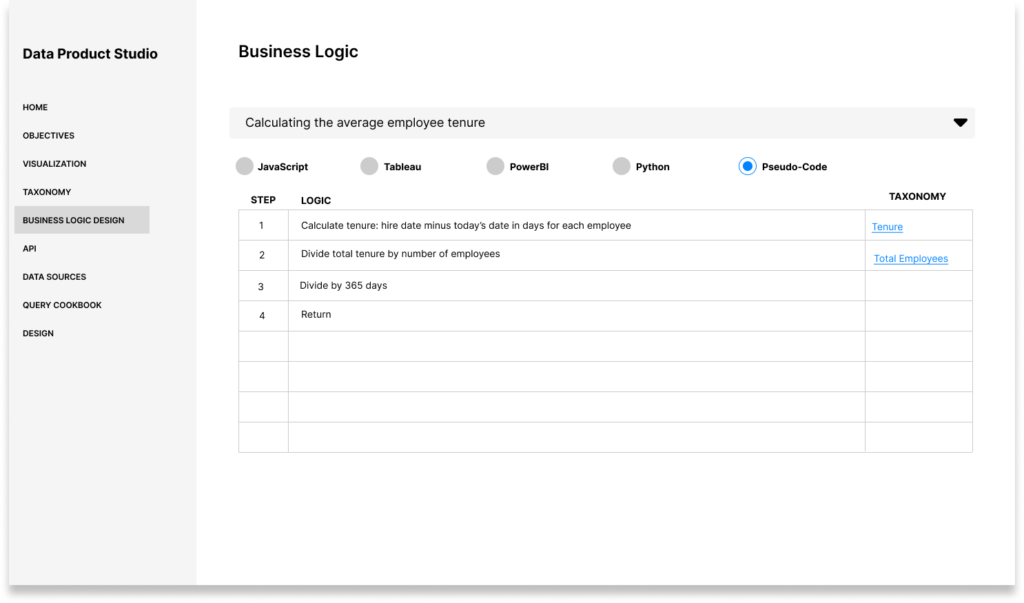Why Semantic Management is the Key to Unlocking Your “Data as a Product”
In our Digital, Data & Analytics practice, one challenge our clients are coming up against is that there is no centralized management of what their key business concepts are. Success is dictated by the foundational elements of data, like having metadata and language everyone can agree to. Semantic management is the key to success in effective analytics programs, and treating “data as a product” will boost efficiency of internal teams.
Overall, the data literacy and data management discipline has not grown at the same pace as technological innovation. We need to bridge the digital divide between business and technology teams. Because of COVID-19, the gap has gotten worse, prioritizing digital transformation without focusing on training and processes to support rapid technological changes. So many companies want cutting-edge and expensive technologies to solve their problems, only to then discover that because these foundational issues haven’t been addressed, they’re not getting the ROI they were expecting.
Because technology is evolving so rapidly, understanding these data literacy issues requires an ever-increasing investment of time from organizational leaders.
Semantic Management
The definition of semantics can be summarized as the logic of meaning, structure, and relationships of concepts. Semantics are critical for any kind of machine learning or advanced analytics that clients want. Getting an effective and cost-efficient analytics program to successfully implement usually requires semantic management to be robust; however, the lack of a semantic strategy is a primary reason for organizational leaders not getting the ROI they expected from their investments.
Data as a Product
At Clarkston Consulting, we help our clients with a product-management methodology and training so that their teams can treat “data as a product.” What does a ‘data product’ mean? It means that we give the internal customers of data (analysts, engineers, and data scientists) the same level of user experiences that we give our external customers when they use a product. This is critical because our internal teams that use data products are going to use them like Lego building-blocks to build other data products for internal business domain owners so that they can make better decisions, have the information they need at a higher quality, and execute on getting the dashboards and insights they need faster.
“Companies that treat data like a product can reduce the time it takes to implement it in new use cases by as much as 90%.”
“A Better Way to Put Your Data to Work” – Harvard Business Review
Because the need for semantic management is so universal among our clients who want to implement analytics and machine learning, we’ve been thinking about how to support and come to the conclusion that the problems around data are going to be best served by a two-pronged approach: the organizational product-management processes and training, and the implementation of technologies that support a “data as a product” strategy.
Data Product Studio
For applying product management methodologies to data products, we’ve heard from our clients that they want an open-source solution. At Clarkston Consulting, we are focused on doing what is in the best interest of our clients first. Therefore, we are excited to announce we are partnering with clients on an Apache 2 license, an open-source tool that walks teams through a step-by-step process for how to collaborate and communicate effectively in building data products. We call it the” Data Product Studio.”
The Data Product Studio is built using Streamlit.io, an open-source tool that converts Python code into web pages and enables data teams to easily create web apps. We are developing it in an open-source way and actively publishing to GitHub as we continue our iterative development.
If you’re interested in learning more about how Clarkston Consulting can support your organization in a data-as-a-product paradigm, or you would like to try the alpha of our Data Product Studio, please reach out to us.

Screenshot of the Data Product Studio “Key Business Concepts” page, which helps translate business needs to a technical roadmap that software, analyst, and data engineers can use.
Subscribe to Clarkston's Insights
Contributions from Stephanie Bankes



